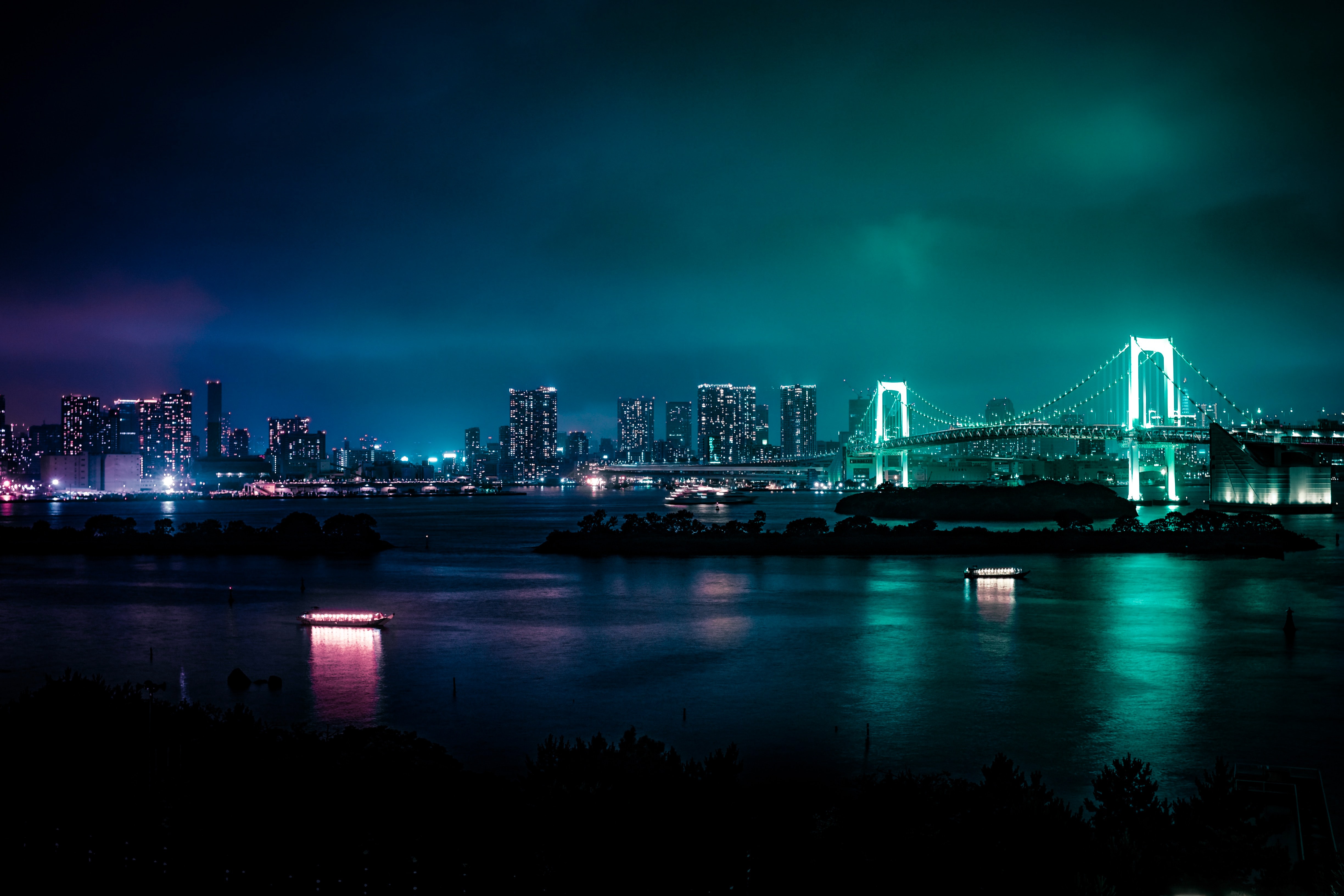5 Entrepreneur and Startup Visas in Asia
Authored by Paula Vazquez

Table of Contents:
- South Korea Business Start-up Visa
- China Business Start-up Visa
- Singapore Start-up Visa Entrepass
- Japan Fukuoka City Start-up Visa
- Indian Business Visa for Starting-up
Asia does not only have the biggest continental economy in the world, but it is also the fastest-growing region. Even though it may differ from city to city, spots like Bangalore, Seoul, Tokyo, Beijing, and Kyoto have thrived as startup hubs due to the private and public funds available for businesses and the big-company headquarters based in the region, which attract potential investors.
The competitive environment encourages economic expansion, and the International Monetary Fund has predicted the region to stay a leader in projection rates and grow slighter faster by 2022 in spite of the pandemic's ups and downs. These are 5 Entrepreneur and Startup Visas in Asia which you might benefit from.
South Korea Business Start-up Visa
South Korea is not only amongst the top #20 best countries to startup, but it is also predicted to come up to position #5 by 2022 as the government is investing around 94.5 BN USD to support Digital and Green companies. The required visa permit for setting up a business, applying for intellectual property rights, and getting the benefits of the Korean ecosystem is the Korean Business Startup Visa (D-10-2) or the Start-up Support and Start-up Visa (D-8-4). Both can be obtained by participating in programs such as OASIS, and Overall Assistance for Startup Immigration System, as they were designed for foreigners who want to establish and launch their business in South Korea based on outstanding ideas and technology. Moreover, the Seoul Business Agency provides public services to support startups. The main period granted is 6 months, but it can also be extended into further periods.
We have partnered with Ahnse Law Office to bring a great service to all entrepreneurs wanting to relocate to South Korea and those who are interested in the Business Visa. Click here to know more about this service.
- Which sub-sectors are currently thriving in South Korea? The most successful sub-sectors currently are AI, Big Data & Analytics, Life Sciences, and Gaming.
- What does the South Korean startup ecosystem look like? The Mayor of Seoul set the goal to turn the city into a hub of young entrepreneurs, and they intend to support start-ups beyond their starting stage. The ecosystem has a value of $47.2 USD bn.
- What does the access to capital for startups look like in South Korea? There are several options to obtain funding in South Korea. One of the most popular ones is The Seoul Global Startup Center, founded in 2016, which supports foreign entrepreneurs that are coming to South Korea by giving them a coworking space to work, mentoring, and education as well as the opportunity to raise money without giving equity in the process. There are also several private incubators and runs such as Venture Capital World Summit, COMEUP, and TIP.
- What are some successful startup stories from South Korea? This startup hub has produced 11 amazing unicorns such as CB Insights, Riid, and Viva Republica.
Photo: Harry Cunningham, Unsplash
China Business Start-up Visa
Cities like Beijing and Shanghai are some of the best places to start up regarding the quality of their ecosystem. The last city offers foreigners a chance to establish a new and innovative startup business through the expansive scope of the Business Startup Visa. This permit also allows investors and key management staff flexibility in conducting business activities including market research, business development, staff recruitment, lease searching, setup procedures, and more even before legally establishing their company.
To know more about the requirements and documents for this visa, please revise this link.
- Which sub-sectors are currently thriving in China? There are five successful sub-sectors throughout China: AI, Big Data & Analytics, Gaming, Life Sciences, and Edtech. The former pivoted after all students switched to online education because of the COVID-19 pandemic.
- What does the startup ecosystem look like in China? Last year, Beijing had the most unicorns out of any startup ecosystem as 93 local startups were valued at $1 USD bn or even more. In other cities like Shanghai, the ecosystem has a value of $157 USD bn.
- What does the access to capital for startups look like in China? As Beijing is one of the places where the commercial activity and headquarters concentrate, incubators and accelerator programs are teeming.
- Does the government of China offer any funding? Yes. The government of China gives support in the form of rent reductions, and subsidies for both innovation and rent since they implemented China’s 2030 Innovation Megaprojects like 5G, smart city, and AI.
Photo: Road Trip with Raj, Unsplash
Singapore Start-up Visa Entrepass
A great destination for tech entrepreneurs is Singapore as the government has well-invested in the sector for years and is planning to increase its efforts by 2025. Moreover, the city of Singapore was ranked as the second most innovative country in Asia by Bloomberg. It is also well-known for having a high-quality life, home-ownership rate, healthcare, and education. The Entrepreneur Pass (EntrePass) permits foreign entrepreneurs to launch their startup in Singapore and relocate there to run it for 2 years. Another option for tech leaders and entrepreneurs is Tech.Pass which lasts for up to 2 years and permits them to start and operate a business, work for another, be a mentor, sponsor family and renew for two extra years.
Read more about the EntrePass and the Tech.Pass in this free visa database.
- Which sub-sectors are currently thriving in Singapore? The sub-sectors that thrive the most in Singapore are the fields of Fintech, Cleantech, Agtech & New Food.
- What does the startup ecosystem look like in Singapore? Lim Ee-Ling, the Regional Director for 500 Startups Asia Pacific, says that the ecosystem in Singapore is set to accelerate and even become a hub for tech startups. The government has been supporting the ecosystem by creating programs and funding and working closely with universities, accelerators, and incubators. The Singaporean startup ecosystem is amongst the best 10 worldwide.
- What does the access to capital for startups look like in Singapore? The government supports first-time entrepreneurs through grants, talent placements, and investment. The Open Innovation Network is intended to connect new businesses with markets abroad and it has produced successful unicorns such as Carro and Patsnap.
- How does Singapore support talent development and attraction? The Singaporean government has worked to facilitate providing visas for employees that work for Singapore-based startups. Tech@SG aids fast-growing companies to hire the talent they need to escalate in the region or abroad.
Photo: Zhu Hongzhi, Unsplash
Japan Fukuoka City Start-up Visa
Japan’s startup ecosystem is one of the most innovative in the world; nonetheless, it used to be closed to foreign entrepreneurs. This has now come to change as 10 cities now have startup visa programs to encourage foreigners to open businesses in their locations. For example, the government of Fukuoka City has approved “Startup Visa or Entrepreneurial Incentives for Foreigners”. The system permits foreigners to receive a six-month “Business Manager'' as long as they submit a New Business Implementation Plan (“NBIP”) to Fukuoka City. The city will then confirm that the entrepreneur is able to fulfill the visa requirements and the Immigration Bureau will evaluate the candidate. After its approval, the six-months visa is provided and the beneficiary can process the rest of the visa requirements while developing the business.
In visadb, you can know more about the requirements to apply for this permit.
- Which sub-sectors are currently thriving in Japan? The biggest sub-sectors are Advanced Manufacturing and Robotics, Fintech, and Life Sciences.
- What does the Japanese startup ecosystem look like? Even though the startup ecosystem was closed to international talent for years, this has now changed through the opportunity of 6 or 12 months visas for entrepreneurs. Also, the governments of the regions where you can get this visa, such as Kobe, are creating an innovative environment where startups can thrive by giving them, for example, free offices and coworking spaces.
- What does the access to capital for startups look like in Japan? The ecosystem has an early-stage funding value of $2.8 USD BN and a total of $40.7 USD BN. Moreover, there are some amazing acceleration programs such as Kobe 500 which has raised more than 110 USD M in investments.
- Is there any government support in Japan for startups? Yes, you can get support as an entrepreneur from the Japanese government. For instance, the J-Startup project is aiming to boost the startup scene in Japan by attracting innovative entrepreneurs from around the world. Through this project, the government applies supportive frameworks to startups.
Photo: Superidol, Unsplash
Indian Business Visa for Starting-up
Starting up in India has become popular in the preceding years as the government has improved the policies to welcome foreign businesspeople and implemented tax-saving programs for investors, easy exits, R&D facilities, and more. If you want to open a business in India, you need a business visa. The maximum length is 5 years but you can extend it on the condition that gross sales meet the requirements. The permit also allows entrepreneurs to hire manforce, and purchase and sell industrial or commercial products. Moreover, it is quickly processed as it is recommended to apply around 3 to 4 weeks before the trip to India.
Visadb has partnered with several high-reputation immigration experts to assure quality in the entrepreneurs’ path to India. Click here to know more about their foreign business establishment, e-business visa, relocation services, and more.
- Which sub-sectors are currently thriving in India? The most outstanding fields in India are fintech, life sciences, advanced manufacturing, AI, Big Data & Analytics.
- What does the Indian startup ecosystem look like? Around the main startup hubs in India, Telangana, Kerala, and Bangalore, the former one’s ecosystem has been recently rated on the TOP 10 Regional Ecosystem Performance and in the TOP 15 regarding Global Knowledge. Moreover, it has been valued at $53 USD BN. There are also several groups of investors and private initiatives such as India’s first Super Fablab, which, in collaboration with MIT, has created some state-of-the-art facilities that allow researchers and entrepreneurs to develop innovation.
- What does the access to capital for startups look like in India? There are many venture capitalists and angel investors. Settling in Indian startup hubs is a great way to find investors, for instance, Kerala is home to 40 incubators, accelerators & Entrepreneurship Development Centers. Another option is the city of Telangana, where startups have access to numerous local investors, including social startups like Hyderabad Angels, Anthill Ventures, Sri Capital, Endiya Partners, and the Indian Angel Network.
- Is there any government support for startups in India? Yes. The cities have different government support and deals. For example, the Kerala government facilitates $136,000 with the Direct Procurement and Public Procurement, and it has benefitted more than 75 startups while 110 projects have been successfully done. Furthermore, the government has created the Startup India Initiative whose objective is to generate job creators instead of job seekers.
Photo: Aniket Bhattacharya, Unsplash
Related Blogs
Why Choose Chile for Birthright Citizenship and Residency in 2025
Get Chilean citizenship by birth, offering the top passport in Latin America, plus easy residency options for digital nomads and expats in 2025.
Hungary Visa Options for Digital Nomads: 2024 Guide
Learn about Hungary's visa options for digital nomads: White Card (Nomad Visa) and Golden Visa. Learn about requirements, taxes, and long-term residency in this EU country.
Colombian Digital Nomad Visa: The Ultimate Guide 2024 With Real Cases
Our verified lawyer has prepared this guide to Colombia's digital nomad visa in 2024: requirements, application process, costs, and real experiences.
How to Apply to Destination Thailand Visa for Digital Nomads
Your go-to guide for the Destination Thailand visa for digital nomads and remote workers: requirements, benefits, and life-in-Thailand information.

